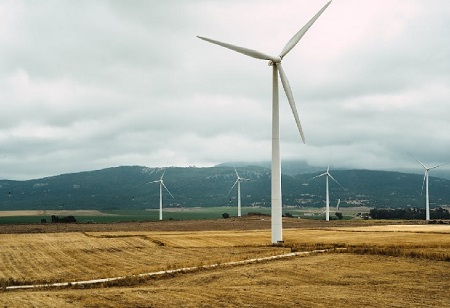
India's non-fossil energy capacity now stands at 188,000 megawatts, with an additional 88,000 megawatts already being installed. According to the Union Minister of Power and New & Renewable Energy, India will meet its 500 GW renewable energy objective before schedule. The Minister declared, "We vowed to reach 500 gigawatts by 2030, and we are ready to meet that objective far in advance. India only produces 4% of the world's carbon dioxide load, Minister Singh observed, while having 17% of the world's population. The Minister also emphasized India's responsible energy consumption practices by pointing out that the country's per capita emissions are roughly 2.2 tonnes, which is much less than the global average of 6.3 tonnes.
The Minister underscored the government’s commitment to environmental stewardship. He affirmed that India is the only major global economy whose energy transition actions are aligned with limiting the global temperature rise to under two degrees Celsius. Moreover, he also mentioned India’s achievement of all its Nationally Determined Contributions (NDCs) nearly a decade earlier than committed. Speaking on occasion, Bhupinder Singh Bhalla, Secretary of the Ministry of New and Renewable Energy, delineated India’s accelerated renewable energy capacity addition strategy.
“Last year, we achieved a renewable energy capacity addition of 15 gigawatts. This year, we are targeting an increase to 25 gigawatts, with plans to escalate it further to 40 gigawatts next year,” said Secretary Bhalla. He alluded to the annual bidding trajectory for the next five years, aiming for 50 gigawatts of new capacity each year, including at least 10 gigawatts in the wind sector. President of FICCI and Managing Director of Indian Metals & Ferro Alloys Subhrakant Panda outlined PM Narendra Modi’s Panchamrit statement at COP26, demonstrating India’s commitment to achieve Net Zero by 2070.
“There is a strong commitment at the highest level, and I will not be surprised if targets are met well ahead of schedule. India’s focus is not solely on economic growth, but rather on inclusive, sustainable, and resilient growth”, he said.In addition, he noted the significant interest in India’s renewable energy space from domestic and international investors as companies address decarbonisation. “FICCI is actively engaged in several areas offering support to initiatives like the Green Hydrogen Mission, the PLI scheme for energy storage and solar equipment, guidelines and standards for EVs and charging infrastructure”, he added. “We will require investments upwards of rupees 20 trillion in transmission networks, evacuation infrastructure, and energy storage system, among others”, Panda said. “There needs to be a continuous focus on ease of doing business measures, especially in the areas of land availability, regulatory clearances, statutory requirements, and penal provisions,” he said.
We use cookies to ensure you get the best experience on our website. Read more...